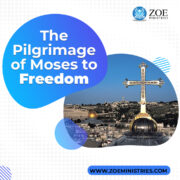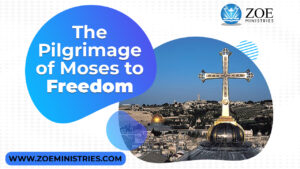The Three Pilgrimages
The Pilgrimage Festival
The pilgrimage festival is an important type of Jewisessential. In the Hebrew Bible, these three holidays are called “agricultural festivals” and “historical events in the history of the Jewish people.” In biblical times, these three holidays were also when people went to the old Temple in Jerusalem. Passover, Shavuot, and Sukkot are the names of these three holidays.
Three holidays
God told the Israelites in the Old Testament, “All your men shall appear three times a year before the Lord your God in the place that God will choose, on the festivals of Pesah (Passover), Shavuot (the Feast of Weeks), and Sukkot.” This place was probably the Temple in Jerusalem (the Festival of Booths). They will show up with nothing. Each person will bring a gift that fits the blessings the Lord your God has given you. In this passage, God says that he wants all male Israelites to go to Jerusalem (which is why these festivals are called “pilgrimages”) and have the priest offer the animal sacrifice required for each of them. In this passage, the Torah only talks about men.
This is because, in the past, women did not have the same legal or religious standing as men. Even though this was left out, women had the same religious and spiritual duties as men when it came to making sacrifices for thanksgiving and making up for their sins. When Israel finally moved into the land, God wanted to constantly remind them that they were passing through this world and that He, not the ground, was their proper inheritance. So, the Lord made Jerusalem the place where he was most present on earth and told them to go there three times a year to worship him at thanksgiving feasts like the Passover. Jesus’ public ministry happens against the backdrop of these frequent journeys. The Holy City was already very holy, but Christ’s blood made it even more sacred for all time.
The Three Jewish Pilgrimage Festivals are:
-
Passover – Celebrates the Exodus of the Jewish people from Egypt, as well as the beginning of the new planting season after the winter rains in Israel, since it falls in the early spring.
-
Shavuot – Biblically, this is solely an agricultural celebration. Falling exactly seven weeks after Passover, which places it occurs at the time of the late spring harvest. [Shavuot as a celebration of the giving of the Torah is a post-biblical development.]
-
Sukkot – Celebrates the wandering of the Israelites in the desert for 40 years, when they had to rely only upon God for food and protection. This also celebrates the last harvest festival before the onset of the winter rains in the land of Israel. It falls five days after Yom Kippur, usually in mid-autumn. At the conclusion of Sukkot, the holidays of Shemini Atzeret and Simchat Torah are celebrated.
Invitation
Prophetic wisdom and anointing await you. Connect for a personal prophecy.
Join our LIVE Conference Call!
1) Call 515-604-9266
2) Go to startmeeting.com, and use the login: BishopJordan









